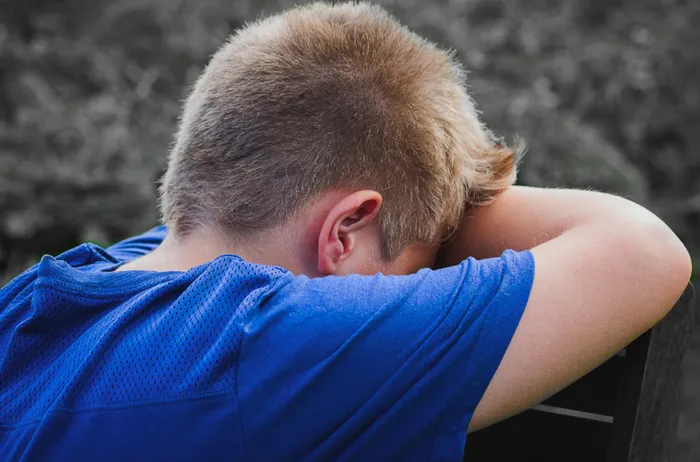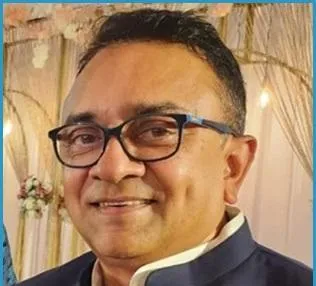The impact of father absence on South African Children
Low self-esteem

South Africa has one of the highest rates of absentee fathers in the world.
Image: Pixabay.com
BEING a volunteer in the child welfare movement for many years teaches one many things - the most important of which is the primacy of family values in a civilised society. The family is the traditional unit of socialisation. It’s where we assume an identity, where we learn our values, where we grapple with the moral and ethical contradictions of what we are taught, where we seek comfort and support and learn coping mechanisms and life skills that remain with us for life. This is complemented by schools, churches, peer groups, universities and other agencies.
In what is often considered a conservative view in contemporary times, many of us still believe that children need to be reared by mummy and daddy in the same home, being physically and emotionally present, even though the gender roles previously taken for granted are rapidly changing.
Unfortunately, South Africa has one of the highest rates of absentee fathers in the world. Over 61% of children under the age of 18 do not live with their biological fathers. Of this number, 10.1% of children’s fathers are deceased, while 51.7% of children’s fathers are alive, but not living with the child.
Only 33% of South African children live with both their parents and of the remaining 67%, only 39% live with their biological mothers and 4% with their biological fathers. The other 57% lived in other kinds of care, including extended families, mainly grandmothers, government institutions or child-headed households.
These statistics do not take into account the many fathers who are living with their children, but are absent emotionally or are abusive in some way or another leading to institutional care in child and youth care centres or in foster care placements burdening an inadequate social welfare budget that continues to make the provision of daily services an increasingly impossible task for child welfare societies.
Now we understand that colonial dispossession, apartheid-era land evictions, influx controls, pass laws, and the migrant labour system created deep-seated family fragmentation. Black men were forced to reside far from their families, in single-sex hostels, for employment in mines and factories or in distant cities, a pattern that persists today under conditions of heightened economic inequality. The root of fatherlessness has its genesis herein. We know that social and historical forces are instrumental in shaping behaviour but what about individual agency?
Whilst social class, gender, religion, ethnicity and customs either influence or limit individual actions don’t adult human beings have the potential and ability to determine their own thoughts and behaviour? Isn’t it possible to break the cycles of gender-based violence, child neglect and the other manifestations of toxic masculinity of irresponsible biological fathers?
This is especially the case with younger, educated, financially secure men; many of whom are businessmen and professionals, beneficiaries of the democratic transition, but take little or no care of their own children.
The results of absentee fathers are devastating. Numerous studies have shown that children who grow up fatherless are more vulnerable to emotional problems such as depression.
Girls are more likely to have lower self-esteem, which could lead to earlier and riskier sexual behaviour, teenage pregnancy, marrying early and getting divorced. All potentially welfare cases.
Father absence correlates with lower school completion rates, poor academic performance, and lower future earnings.
Boys who grow up without a father are more prone to extreme aggression and in South Africa males between 15 and 34 are the most likely group to commit crimes. Studies in the United States of America have shown a direct correlation between fatherlessness and delinquency
- 63% of people who commit suicide come from fatherless homes
- 70% of juveniles in state-operated institutions come from fatherless homes
- 80% of rapists supposedly motivated by displaced anger come from fatherless homes
- 85% of children with behavioural problems come from fatherless homes
- 90% of homeless children come from fatherless homes
In 2016, a national prevalence study estimated that 1 in 3 children are victims of sexual violence and physical abuse before they reach the age of 18, whilst 12% of children report neglect and 16% report emotional abuse
Children have a constitutional right to protection from maltreatment, abuse, and neglect and a right to responsive protection services following abuse. However, the child protection system is failing to protect children. Law and policy is comprehensive, but implementation is poor. The volunteer child welfare movement with many decades of experience requires much more funding and support from both government and communities to tackle these social ills.
Changing social norms, national education and awareness campaigns on engaged fatherhood, job creation and economic empowerment for both men and women, mentorship networks and social grants are all important in alleviating the scourge of both GBV and father absenteeism but at the end of the day it is not the state’s responsibility to look after our children. Those of us who have children must take responsibility for them. This is not to blame the victim but to reflect on the power of individual agency.

Professor Dasarath Chetty
Image: File
Professor Dasarath Chetty has been a volunteer in the Child Welfare movement for 40 years, having served as President of Child Welfare South Africa for 8 years and as President of Durban Child Welfare for 8 years amongst other leadership positions.
** The views expressed do not necessarily reflect the views of IOL or Independent Media.
Related Topics: